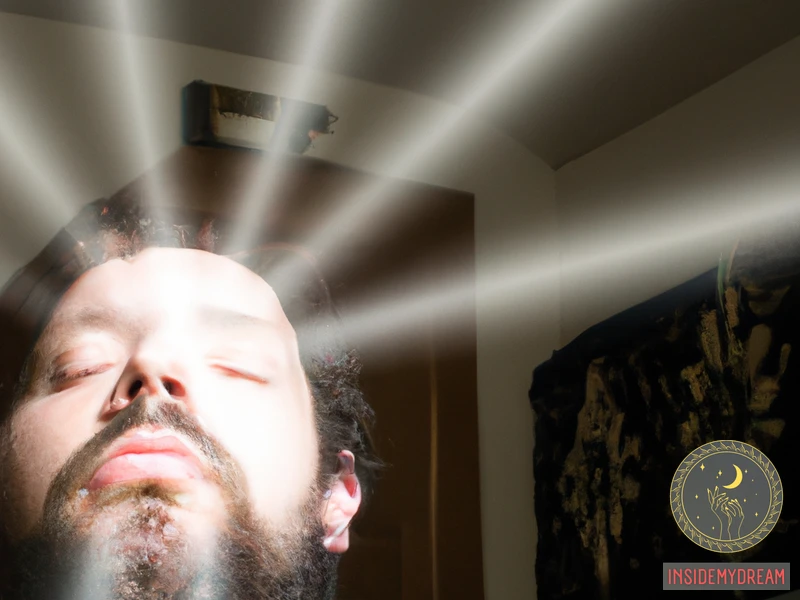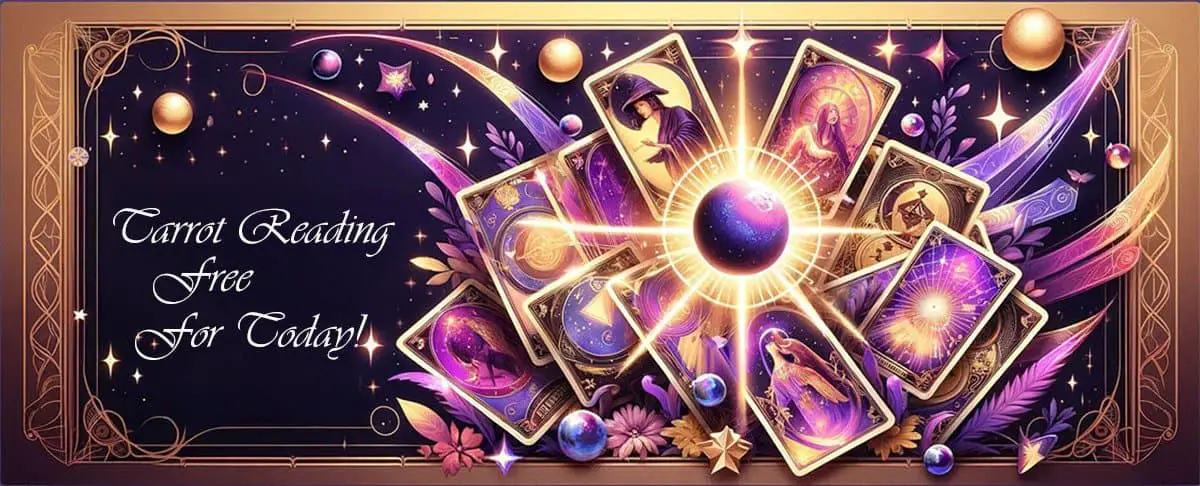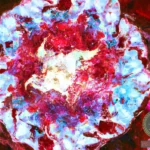Dreams have always been a subject of fascination for humans across time and cultures. They have been seen as a portal to the unconscious mind, a place where hidden truths and desires surface, and where the future can be revealed. In Jewish tradition, dreams hold significant meaning and are believed to be a form of communication from a higher power. Understanding Jewish dream interpretation is crucial in unlocking the messages within our subconscious mind. In this article, discover the roots of Jewish dream interpretation, common dream symbols and their meanings, and how to interpret your Jewish dreams.
What Is Jewish Dream Interpretation?

Dreams have always been regarded as a powerful tool for self-reflection and self-discovery. In the Jewish tradition, dreams hold an even more significant place. Jewish dream interpretation is an ancient practice that aims to decipher the messages that come from the divine through dreams. Dreams are believed to contain important clues to help individuals find their path in life and connect with God. In this section, we will explore the roots of Jewish dream interpretation, the role of dreams in Judaism, and the common meanings of various dream symbols. We will also provide some tips on how to interpret your Jewish dreams so that you can unlock the wisdom they contain. If you’re interested in dream interpretation, you may find our article on dreams of survival or falling into a black hole dream meaning helpful.
Ancient Roots of Jewish Dream Meaning
The Jewish faith has a long tradition of dream interpretation, dating back to biblical times. In fact, dreams are mentioned in several Jewish texts, including the Talmud and the Torah.
According to Jewish tradition, dreams are considered to be a form of divine revelation and the interpretation of dreams is taken very seriously. One of the most famous examples of this is the story of Joseph in the book of Genesis, who was able to interpret dreams and even used his interpretation skills to advise the Pharaoh of Egypt.
Dream interpretation has been a part of Jewish culture for centuries, and many of the stories and legends from Jewish history are based on dreams or visions. For example, in the Talmud, there is a story about Rabbi Yochanan who had a dream where he saw his friend, Rabbi Hanina, burning in a fire. Rabbi Yochanan interpreted this dream to mean that Rabbi Hanina was in danger of being punished for a particular sin, and the two of them were able to work together to prevent it.
Subscribe and Get a Free Dream Journal from Us
According to Jewish dream interpretation, dreams are often seen as messages from God, sent to guide us or warn us of impending dangers. Strong emotions felt during a dream, particularly anxiety or fear, can be seen as a sign that the dream contains an important message.
In Jewish culture, dream interpretation is often seen as a way to gain insights into the future or to better understand oneself. Dreams can also be seen as a way to connect with God and to receive divine guidance. This has led to a long tradition of Jewish dream interpretation and many famous rabbis throughout history were known for their interpretation skills.
The Role of Dreams in Judaism
In Judaism, dreams have long been considered an important form of communication with the divine. The Talmud, a central text of Judaism, states that “a dream that is not interpreted is like a letter that is not read.” Dreams were believed to be a way for God to communicate directly with individuals or to provide guidance or warnings.
One significant example of dreams in Judaism is the story of Joseph in the Book of Genesis. Joseph had several dreams that he interpreted as predictions of his future leadership and the subservience of his family to him. His brothers were jealous and sold him into slavery in Egypt, but later Joseph’s ability to interpret dreams gained him favor with the Pharaoh and ultimately led to his rise to power and reconciliation with his brothers. This story emphasizes the importance of interpreting and understanding the meanings of dreams in Jewish tradition.
In addition to prophetic dreams, Jewish tradition also recognizes certain types of dreams as communication from the soul. These may include dreams that are particularly vivid or emotional, or dreams that recur frequently. In some cases, these dreams may reveal hidden aspects of the dreamer’s personality or provide insight into their spiritual journey.
In modern times, many Jews continue to place importance on dreams as a means of communication with the divine. While not all dreams are considered prophetic or spiritually significant, they are still seen as a potential source of guidance or insight. Keeping a dream journal and reflecting on one’s dreams is one way for individuals to explore this aspect of Jewish tradition and deepen their understanding of their own spiritual journey.
If you have a Jewish dream, reflecting on its possible meanings can be a valuable exercise in self-discovery and spiritual growth. Whether it involves water, animals, colors, people, or religious imagery, considering the symbolism, emotions, and guidance within the dream can be enlightening. And, if you need help interpreting your dream, seeking guidance from a rabbi or Jewish dream interpreter can provide valuable insights.
Common Jewish Dream Meanings
As we delve into the realm of Jewish dream interpretation, we cannot ignore the common Jewish dream meanings that have been passed down through generations. These symbols and motifs have become deeply ingrained in Jewish culture, and their appearance in dreams can hold significant meaning. From water and animals to colors and people, these archetypes can offer insight into our deepest desires and fears. So, let’s explore some of the most common Jewish dream meanings and what they may signify in our subconscious minds. Perhaps you’ve had a dream about walking in water or encountering an animal, such as a yellow cat. Or maybe you saw religious imagery or an evil little girl. Each of these dreams has the potential to hold a message, and it’s up to us to interpret it.
Water in Jewish Dreams
Water is an important and powerful element in Jewish dream interpretation, as it often represents purification, renewal, and spiritual transformation. In Jewish culture, water has both positive and negative connotations, depending on the context in which it appears in a dream.
Here are some common meanings of water in Jewish dreams:
- Cleansing: Water is often seen as a symbol of cleansing and purification, representing a desire to wash away negative emotions or experiences. If you dream of taking a bath or shower in clean, clear water, it may indicate a need for spiritual or emotional cleansing.
- Rebirth: Water can also represent rebirth and renewal, as in the story of Noah’s Ark. If you dream of being in a flooded room or swimming in deep water, it may signify a time of transition or new beginnings.
- Danger: On the other hand, water can also be associated with danger and chaos. If you dream of being caught in a storm or swept away by a strong current, it may indicate feelings of being overwhelmed or out of control.
- Healing: Water is also believed to have healing powers in Jewish dream interpretation. If you dream of drinking from a clear, cool stream or bathing in a natural hot spring, it may signify a need for physical or emotional healing.
It’s important to consider both the context and your own emotions and associations with water in your dream. For example, if you have a fear of drowning, your dream of walking in water may have a different meaning than if you feel comfortable and safe in water.
Water in Jewish dreams can be a powerful message from your unconscious mind about the need for change, purification, and connection to the divine.
Animals in Jewish Dreams
Animals are common symbols in Jewish dreams and are often believed to represent different aspects of a person’s personality or character. Here are some examples of animals and their possible meanings in Jewish dream interpretation:
- Cats: In Jewish culture, cats are associated with intuition and mysticism. If you see a yellow cat in your dream, it may represent your spiritual or mystical side.
- Dogs: Dogs are often seen as loyal companions and can represent friendship or loyalty in a dream. However, if the dog in your dream is aggressive or menacing, it could symbolize fear or mistrust.
- Birds: Birds are often associated with freedom and the spirit. If you dream of a bird in flight, it may represent your desire for liberation or spiritual transcendence.
- Snakes: Snakes are complex symbols in Jewish culture and can represent both positive and negative qualities. They are often associated with knowledge and wisdom, but can also represent danger and temptation.
- Elephants: In Jewish dream interpretation, elephants are seen as symbols of strength, stability, and perseverance.
- Sheep: Sheep are often associated with innocence and purity. If you dream of a flock of sheep, it may represent your desire for peace and simplicity.
It is important to note that the meaning of an animal in a dream may vary depending on the context. For example, dreaming of an electric guitar playing itself with the help of a gorilla may represent the dreamer’s desire to express themselves through music and the gorilla symbolizes their strength and power.
Animals can provide valuable insights into your subconscious and can help you better understand your desires, fears, and motivations. If you have a dream about an animal that feels particularly significant, it may be worth exploring its possible meanings with the help of a knowledgeable dream interpreter or rabbi.
Colors in Jewish Dreams
In Jewish dream interpretation, colors play an important role in decoding the message of a dream. Each color has a specific meaning and can give insight into the dreamer’s emotions, personality, and spiritual state. Here are some of the common colors and their meanings in Jewish dreams:
| Color | Meaning |
|---|---|
| Red | Passion, love, danger, warning |
| Blue | Spirituality, tranquility, truth |
| Green | Growth, fertility, prosperity, healing |
| Yellow | Joy, happiness, hope, cowardice |
| Purple | Royalty, luxury, wealth, ambition |
| White | Purity, innocence, goodness, righteousness |
| Black | Death, mourning, evil, mystery |
| Gold | Divine light, enlightenment, reward |
For example, if a person dreams of a red car, it could represent their passion for driving or their love for someone. On the other hand, if a person dreams of a black car, it could represent a sense of danger or mystery. Similarly, if a person dreams of walking in water and the water is green, it could symbolize growth and healing, while if the water is blue, it could represent spiritual truth and tranquility. It’s important to note that the meaning of color in a dream can also be influenced by the context and personal associations of the dreamer.
In one account collected in the book Jewish Dreams: Symbolism and Analysis, a woman dreamt of an evil little girl dressed in red. The girl was “trying to scratch and hurt everyone,” and the dreamer felt afraid. The analysis of the dream suggested that the red color of the girl’s dress represented danger and warning, and that the girl herself may have represented a part of the dreamer’s shadow self that needed to be confronted and integrated.
Colors can provide valuable clues in understanding the messages in Jewish dreams. To explore the deeper meanings of color symbolism in your own dreams, it’s important to reflect on your personal associations with each color and the context of the dream itself.
People in Jewish Dreams
In Jewish dreams, the people that appear can often hold significant meaning. Whether they are familiar or unfamiliar faces, the roles they play in the dream can reveal messages about our waking lives.
Family Members: It’s common to dream about family members, and in Jewish dream interpretation, they often symbolize different aspects of the self. For example, dreaming about a mother may represent nurturing and protection, while dreaming about a father may represent authority or guidance.
Strangers: When unfamiliar faces appear in Jewish dreams, they may represent different parts of the dreamer’s personality or aspects of their unconscious. For instance, dreaming of a menacing stranger could signify repressed fears or anxieties.
Historical Figures: Jewish dreams can involve historical figures such as Moses or King David. These individuals may serve as spiritual guides or represent qualities that the dreamer admires.
Religious Figures: Jewish dreams often incorporate religious figures such as rabbis, angels, or God. Dreaming about religious figures may suggest that the dreamer is seeking guidance or has a desire for spiritual connection.
Negative Characters: Sometimes, negative characters may appear in Jewish dreams. These could be people the dreamer knows or fictional characters. For example, dreaming about an evil little girl could represent a fear of innocence being corrupted.
| People in Jewish Dreams | Dream Interpretation |
|---|---|
| Family Members | Represent different aspects of the self (mother = nurturing; father = authority) |
| Strangers | May represent different parts of the dreamer’s personality or aspects of their unconscious |
| Historical Figures | Serve as spiritual guides or represent qualities the dreamer admires |
| Religious Figures | Suggest seeking guidance or a desire for spiritual connection |
| Negative Characters | Can represent fears (e.g. evil little girl) or negative influences |
It’s important to consider the emotions and actions of these people in the dream, as these can further inform the interpretation. For example, dreaming of walking in water with a loved one may indicate a deep emotional connection, while dreaming of car headlights could symbolize challenges or obstacles ahead.
Religious Imagery in Jewish Dreams
In Jewish culture, religious imagery is a common theme in dreams. These dreams often include symbols that represent significance within the Jewish faith. Some examples of such symbols are presented in the table below:
| Symbol | Meaning in Jewish Dreams |
|——–|————————-|
| Torah | Divine instruction |
| Menorah | Symbol of Judaism. It represents the burning bush from the Bible, as well as the seven days of Creation. It also represents the creation of light, and the idea that the Jewish people are a light unto the nations. |
| Kippah (Yarmulke) | Symbol of devotion and humility |
| Tallit | Symbol of prayer and spiritual connection |
| Shofar | Symbol of new beginnings and the importance of repentance |
| Star of David | Symbol of Jewish identity and the connection to God |
| Chai | Symbol of life and vitality |
| Hamsa | Symbol of protection and warding off the evil eye |
These symbols can be powerful indicators of the message that your dream is trying to convey. For example, if you dreamt of a Torah, it may be an indication that you need to seek divine advice for a particular issue. If you dreamt of a Menorah, it may represent that you need to become more connected to your Jewish heritage.
It is essential to note that the interpretation of these symbols may vary depending on the context of the dream. For instance, if a person dreamt of a Menorah in the context of Hanukkah, it might suggest a desire to celebrate the holiday with the family. On the other hand, if a person sees a Menorah in the context of a funeral, it could represent a loss of spiritual connection.
It’s worth mentioning that the interpretation of religious imagery in dreams should be done with caution. It’s advisable to seek guidance from a Rabbi or Jewish dream interpreter, as they can provide proper context to the symbols and provide a more accurate interpretation.
As seen in this article, dreams play an essential role in Judaism, and their interpretations can be meaningful in one’s life. Whether you are experiencing a dream of water, animals, colors, or religious imagery, understanding the messages in your dreams can have a profound impact on your spiritual and emotional well-being.
How to Interpret Your Jewish Dreams
When it comes to interpreting your dreams, there are many different methods and traditions. In Jewish culture, dreams have long been seen as a way to connect with the divine and gain insights about the world and oneself. If you’ve been having vivid dreams and want to understand their deeper meanings, there are several steps you can take. By following these guidelines, you can begin to unlock the wisdom that your dreams may hold. Consider starting a dream journal, looking for symbolism, examining your emotions, and seeking guidance from a rabbi or Jewish dream interpreter. Whether you’re dreaming about walking in water, encountering an evil little girl, seeing car headlights, or hearing Fiona Apple’s “Sleep to Dream,” there are tools and techniques you can use to explore the significance of your dreams.
Keep a Dream Journal
Keeping a dream journal can be a useful tool in interpreting Jewish dreams. It allows you to reflect on the details of your dreams and understand the patterns and symbols that may appear. Firstly, find a notebook or a journal that you like and feel comfortable writing in. Keep it near your bed along with a pen or pencil, so that when you wake up from a dream, you can quickly jot it down.
Write in Detail: Start your dream journal by noting the date, time, and location (if relevant) of your dream. Then, write down as many details about the dream as you can remember. Be sure to include the people, animals, objects, and any emotions you experienced. Try to write down the colors, sounds, and smells that you recall. Using bullet points or numbered lists can make it easier to track recurring symbols or themes.
To give an example, say you had a dream that you were driving a car and the headlights went out. In a dream journal, you could write:
– Date: 83121
– Time: 3:00 am
– Location: Driving on the highway
– Dream: I was driving my car and suddenly the headlights went out. I couldn’t see anything and had to slow down. I was scared that I would crash.
– Symbols: Car, headlights, highway, darkness, fear.
By recording your dreams consistently, you may start to notice patterns that can help you understand recurring dreams. For example, if every dream you have involves an evil little girl, you may want to explore what that symbol means in Jewish dream interpretation. Similarly, if you have dreams of walking in water, you may want to read about the Jewish interpretations of water in dreams.
Look for Symbolism
Looking for symbolism in your dreams can be a helpful way to interpret their meaning in the context of Jewish dream interpretation. To do this effectively, start by examining the different objects, people, and events that appear in your dream and consider what they might represent.
Here are some examples of common dream symbols in Jewish tradition:
- Water: Water is often viewed as a metaphor for the soul in Jewish dreams. If you dream of walking in water, it may represent a journey of personal growth and spiritual transformation. Check out more on dream of walking in water.
- Animals: Different animals can represent different qualities or traits. For example, a lion may symbolize strength, courage, or leadership, while a deer may represent gentleness or vulnerability. See also evil little girl dream meaning.
- Colors: Colors can also have symbolic meanings in Jewish dreams. For instance, blue may represent spirituality or divinity, while red may be associated with passion or anger. Learn more about colors in Fiona Apple’s Sleep to Dream meaning.
- People: Pay attention to the identities and actions of the people in your dreams. They may represent aspects of yourself or different relationships in your life.
- Religious Imagery: Dreams featuring religious symbols or figures may be particularly significant within the context of Jewish interpretation.
By identifying and deciphering these symbols, you can gain deeper insights into what your dream might be trying to tell you about your life, emotions, and spiritual journey.
Consider Your Emotions
When it comes to Jewish dream interpretation, it is important to not only pay attention to the symbols and imagery present in your dreams, but also to your emotions during the dream. Your emotions can provide valuable insights into the meaning of your dream.
Specific emotions can be associated with different interpretations of dream symbols. Here is a chart to help you consider the emotions you experienced during your dream:
| Emotion | Interpretation |
|---|---|
| Fear | This may indicate that you are afraid of something in your waking life, or that you are dealing with feelings of anxiety or uncertainty. |
| Joy | This may represent that you are experiencing happiness or fulfillment in your waking life, or that you are in a good place emotionally. |
| Sadness | You may be dealing with feelings of loss or grief in your waking life. Alternatively, this could indicate that you are suppressing emotions that need to be addressed. |
| Anger | This may suggest that you are feeling frustrated or powerless in your waking life. It could also signify that you need to express anger or frustration constructively. |
| Confusion | This may indicate that you are feeling lost or uncertain in your waking life, or that you need to clarify your thoughts or feelings on a particular situation. |
| Excitement | This may suggest that you are feeling enthusiastic or optimistic in your waking life, or that you are ready to take on new challenges. |
By reflecting on your emotions during your dream, you can gain a deeper understanding of the possible meanings and messages being conveyed to you through your dream. It is important to remember that dreams are personal and subjective, so your interpretation may differ from others. Trust your own intuition and feelings when interpreting your dreams.
Seek Guidance from a Rabbi or Jewish Dream Interpreter
In Judaism, dreams are believed to have symbolic meanings that provide important messages to the dreamer. Seeking guidance from a Rabbi or Jewish Dream Interpreter can help in interpreting the messages conveyed through dreams.
Rabbis are spiritual leaders who possess in-depth knowledge of the Torah and Jewish traditions. They play an important role in providing guidance and advice to their congregation members regarding various aspects of life, including dreams.
Jewish Dream Interpreters are trained professionals who specialize in decoding the symbolism in dreams. They use a variety of techniques and tools, including the interpretation of ancient texts, to uncover the significance of dreams.
Why Seek Guidance from a Rabbi or Jewish Dream Interpreter?
The symbolism in dreams can be difficult to understand, and it takes a lot of knowledge and experience to decipher the messages hidden in them. A Rabbi or Dream Interpreter can use their expertise to provide a detailed interpretation of the dream and help the dreamer understand the message conveyed in the dream.
It is also important to seek guidance from a Rabbi or Dream Interpreter because different symbols may hold different meanings based on the context of the dreamer’s life. For instance, seeing a snake in a dream may have different meanings depending on whether the dreamer is afraid of snakes or has a fascination with them.
How to Seek Guidance from a Rabbi or Jewish Dream Interpreter
If you are interested in seeking guidance from a Rabbi or Dream Interpreter, you can start by visiting your local synagogue and scheduling an appointment with the Rabbi. Alternatively, you can use online resources to find a Jewish Dream Interpreter, such as the International Association for the Study of Dreams.
During the consultation, you can share the details of your dream with the Rabbi or Dream Interpreter. Be sure to provide as much information as possible, including your emotions and any significant events in your life that may be related to the dream.
After analyzing the symbolism in your dream, the Rabbi or Dream Interpreter can provide an interpretation and offer advice based on their findings.
Conclusion
In conclusion, exploring the world of Jewish dream interpretation can be a fascinating and insightful journey. Through understanding the ancient roots of Jewish dream meaning and the role of dreams in Judaism, we can start to unravel the messages that our dreams may be trying to communicate to us.
By examining common Jewish dream meanings, such as water, animals, colors, people, and religious imagery, we can gain a deeper appreciation for the rich symbolism that exists within the Jewish tradition.
If you want to interpret your Jewish dreams for yourself, it’s important to keep a dream journal, look for symbolism, consider your emotions, and seek guidance from a rabbi or Jewish dream interpreter if needed.
Overall, by paying attention to our dreams and tapping into the wisdom of Jewish dream interpretation, we can gain valuable insights into our inner selves, our relationships, and our spiritual journeys. With an open mind and a willingness to explore, we can unlock the hidden messages and meanings that our dreams may be trying to reveal to us. So embrace the mystery and see where your dreams may lead you!
Frequently Asked Questions
What does it mean to dream of water in Jewish culture?
Water commonly represents spirituality, renewal, and purification in Jewish dreams. It can also symbolize wealth and prosperity.
What do animals symbolize in Jewish dreams?
Animals can represent a range of meanings in Jewish dreams, such as strength, intelligence, and cunning. Each animal carries its own unique significance.
Do colors have specific meanings in Jewish dreams?
Yes, colors can have significant meaning in Jewish dream interpretation. For example, the color blue represents holiness and heaven while yellow can symbolize jealousy or cowardice.
Can people in Jewish dreams signify something deeper?
Absolutely, the people in your Jewish dreams can often be symbolic of different aspects of yourself, or even represent certain individuals in your life. It’s important to pay attention to the details in the dream to interpret their true meaning.
What is the significance of religious imagery in Jewish dreams?
Religious imagery can represent a higher power or divine energy. It can also represent an individual’s connection to their faith and spirituality.
Why is it important to keep a dream journal?
Keeping a dream journal can help you identify patterns and recurring symbols in your dreams. It’s also a helpful tool in retaining the details of a dream for interpretation later on.
How do I know if a symbol in my dream has a personal significance?
If a symbol or image in your dream feels particularly strong or emotional to you, it may have a personal significance. Reflect on your thoughts and feelings in the dream to determine if it holds a deeper meaning for you.
Can I interpret my Jewish dreams on my own?
While it’s possible to interpret your Jewish dreams on your own, seeking guidance from a rabbi or Jewish dream interpreter can provide deeper insight and understanding.
What if I don’t remember my dream?
It’s okay if you can’t remember all the details of a dream. Focus on any images or feelings that still stand out in your memory, as they can still hold significance in Jewish dream interpretation.
Why are dreams significant in Judaism?
In Judaism, dreams are seen as a way for individuals to connect with a higher power and gain insight into their lives and spiritual journeys. Dreams are often seen as a way for God to communicate with his people.










